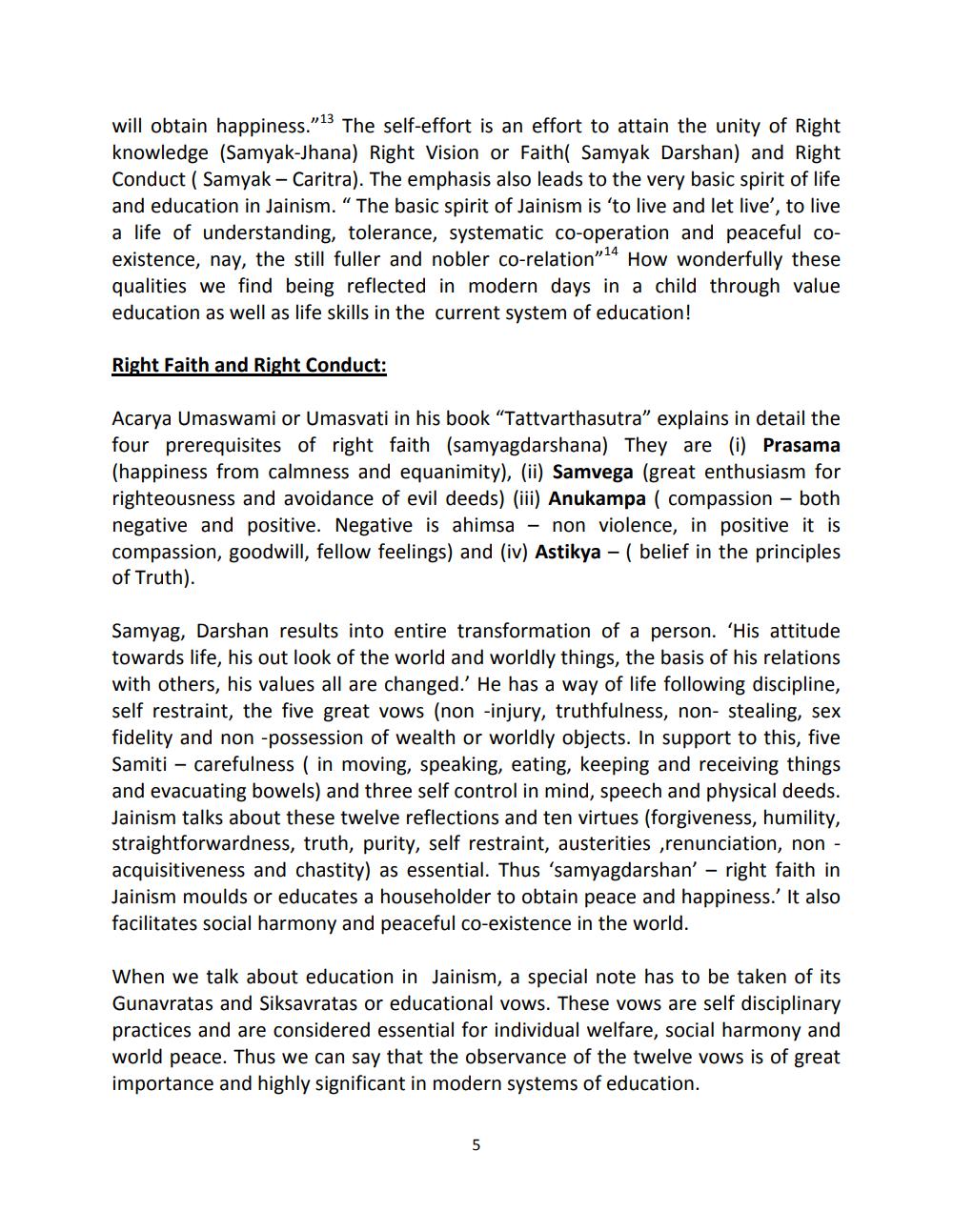________________
will obtain happiness."13 The self-effort is an effort to attain the unity of Right knowledge (Samyak-Jhana) Right Vision or Faith( Samyak Darshan) and Right Conduct ( Samyak - Caritra). The emphasis also leads to the very basic spirit of life and education in Jainism. “The basic spirit of Jainism is 'to live and let live', to live a life of understanding, tolerance, systematic co-operation and peaceful coexistence, nay, the still fuller and nobler co-relation"14 How wonderfully these qualities we find being reflected in modern days in a child through value education as well as life skills in the current system of education!
Right Faith and Right Conduct:
Acarya Umaswami or Umasvati in his book "Tattvarthasutra" explains in detail the four prerequisites of right faith (samyagdarshana) They are (i) Prasama (happiness from calmness and equanimity), (ii) Samvega (great enthusiasm for righteousness and avoidance of evil deeds) (iii) Anukampa ( compassion - both negative and positive. Negative is ahimsa - non violence, in positive it is compassion, goodwill, fellow feelings) and (iv) Astikya - ( belief in the principles of Truth).
Samyag, Darshan results into entire transformation of a person. 'His attitude towards life, his out look of the world and worldly things, the basis of his relations with others, his values all are changed.' He has a way of life following discipline, self restraint, the five great vows (non -injury, truthfulness, non- stealing, sex fidelity and non-possession of wealth or worldly objects. In support to this, five Samiti – carefulness ( in moving, speaking, eating, keeping and receiving things and evacuating bowels) and three self control in mind, speech and physical deeds. Jainism talks about these twelve reflections and ten virtues (forgiveness, humility, straightforwardness, truth, purity, self restraint, austerities ,renunciation, nonacquisitiveness and chastity) as essential. Thus 'samyagdarshan' - right faith in Jainism moulds or educates a householder to obtain peace and happiness.' It also facilitates social harmony and peaceful co-existence in the world.
When we talk about education in Jainism, a special note has to be taken of its Gunavratas and Siksavratas or educational vows. These vows are self disciplinary practices and are considered essential for individual welfare, social harmony and world peace. Thus we can say that the observance of the twelve vows is of great importance and highly significant in modern systems of education.




